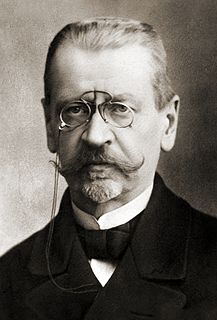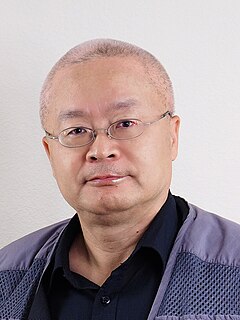Related Research Articles

In political science, a revolution is a fundamental and relatively sudden change in political power and political organization which occurs when the population revolts against the government, typically due to perceived oppression or political incompetence. In book V of the Politics, the Ancient Greek philosopher Aristotle described two types of political revolution:
- Complete change from one constitution to another
- Modification of an existing constitution.
World history or global history as a field of historical study examines history from a global perspective. It emerged centuries ago; leading practitioners have included Voltaire (1694-1778), Hegel (1770-1831), Karl Marx (1818-1883) and Arnold J. Toynbee (1889-1975). The field became much more active in the late 20th century. It is not to be confused with comparative history, which, like world history, deals with the history of multiple cultures and nations, but does not do so on a global scale. World history looks for common patterns that emerge across all cultures. World historians use a thematic approach, with two major focal points: integration and difference.

Arnold Joseph Toynbee was a British historian, a philosopher of history, an author of numerous books and a research professor of international history at the London School of Economics and King's College London. From 1918 to 1950, Toynbee was considered a leading specialist on international affairs.

Rural sociology is a field of sociology traditionally associated with the study of social structure and conflict in rural areas although topical areas such as food and agriculture or natural resource access transcend traditional rural spatial boundaries. It is an active academic field in much of the world, originating in the United States in the 1910s with close ties to the national Department of Agriculture and land-grant university colleges of agriculture.

A Study of History is a 12-volume universal history by the British historian Arnold J. Toynbee, published from 1934–1961. It received enormous popular attention but according to historian Richard J. Evans, "enjoyed only a brief vogue before disappearing into the obscurity in which it has languished." Toynbee's goal was to trace the development and decay of 19 world civilizations in the historical record, applying his model to each of these civilizations, detailing the stages through which they all pass: genesis, growth, time of troubles, universal state, and disintegration.
Benjamin Nelson was a sociologist who explored the historical development and nature of civilizations. He held positions at University of Chicago, University of Minnesota, Stony Brook University and after 1966, New School for Social Research.
The American Council of Learned Societies (ACLS), founded in 1919, is a private, nonprofit federation of 75 scholarly organizations in the humanities and related social sciences. It is best known for its fellowship competitions which provide a range of opportunities for scholars in the humanities and related social sciences at all career stages, from graduate students to distinguished professors to independent scholars, working with a number of disciplines and methodologies in the U.S. and abroad.
Comparative history is the comparison of different societies which existed during the same time period or shared similar cultural conditions.

Charles Tilly was an American sociologist, political scientist, and historian who wrote on the relationship between politics and society. He was a professor of history, sociology, and social science at the University of Michigan from 1969 to 1984 before becoming the Joseph L. Buttenwieser Professor of Social Science at Columbia University.
The Association for Asian Studies (AAS) is a scholarly, non-political and non-profit professional association open to all persons interested in Asia and the study of Asia. It is based in Ann Arbor, Michigan, United States. With approximately 8,000 members worldwide, from all the regions and countries of Asia and across academic disciplines, the AAS is the largest organization focussing on Asian studies.

Leon Petrażycki was a Polish philosopher, legal scholar, and sociologist. He is considered an important forerunner of the sociology of law.
"Wissenschaft des Judentums" refers to a nineteenth-century movement premised on the critical investigation of Jewish literature and culture, including rabbinic literature, using scientific methods to analyze the origins of Jewish traditions.

Iranian studies, also referred to as Iranology and Iranistics, is an interdisciplinary field dealing with the study of the history, literature, art and culture of Iranian peoples. It is a part of the wider field of Oriental studies.

Shuntarō Itō is a Japanese scholar of the history of science and the study of comparative civilization. Itō is an honorary professor of University of Tokyo and International Research Center for Japanese Studies, and a professor of Reitaku University, and the Chairman of Japan Seaology Promotion Organization. He is also a former president of the International Society for the Comparative Study of Civilizations.
The University of Hawaiʻi Press is a university press that is part of the University of Hawaiʻi.
Vytautas Kavolis was a Lithuanian-born American sociologist, literary critic, and culture historian.
The following events related to sociology occurred in the 1950s.

Edgar Ghislain Charles Polomé was a Belgian-born American philologist and religious studies scholar. He specialized in Germanic and Indo-European studies and was active at the University of Texas at Austin for much of his career.

Andrew (Andrzej) Stanislaw Targowski is a Polish-American computer scientist specializing in enterprise computing, societal computing, information technology impact upon civilization, information theory, wisdom theory, and civilization theory. One of the pioneers of applied information systems in Poland, he is an executive, university professor, scientist, civilizationist, philosopher, visionary, writer, and generalist.

Jason Jixuan Hu, is a Chinese American cyberneticist, independent scholar and managing director of WINTOP Organizational Learning Laboratory. He is noted for his work on "cognitive capacity in human communication, conflict resolution and cooperation solicitation," and on view on distance education in America.
References
- ↑ Bowden, Brett (July 2012). "Politics in a World of Civilizations: Long-term Perspectives on Relations between Peoples". Human Figurations: Long-term Perspectives on the Human Condition. 1 (2). Retrieved August 27, 2014.
- ↑ "Civilitas".